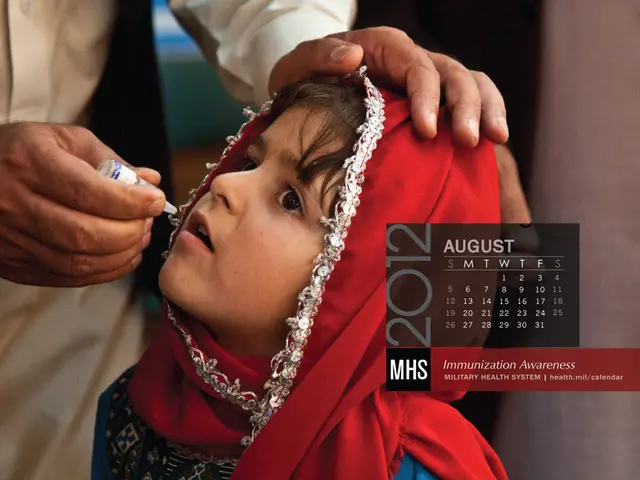Differentiating Age Spots from Skin Cancer: A Guide for Identification
Hey there, buddy! Let's chat about some skin stuff that we all gotta deal with, ya know? Age spots, skin cancer, and actinic keratosis – they're like the trifecta of skin conditions you gotta be aware of as you grow older.
Age spots, also called solar lentigines or liver spots, are those brown or gray patches that show up on our skin as we get a little older. They're usually flat, smooth, and appear most commonly on parts of the body that get the most sun exposure like our face, hands, arms, and shoulders. No big deal, they're just our skin producing too much melanin to protect itself from the sun's UV rays.
But, skin cancer is a completely different ball game. Skin cancer is a type of cancer that can develop when our skin has been damaged by the sun or UV tanning beds. And guess what? Skin cancer can look a whole lot like age spots, especially if it's in its early stages. Some signs that a skin growth might be cancerous are:
- asymmetrical shape
- irregular, blurred, or ragged edges
- changing size, color, or shape
- multiple colors on the same spot
- pink, blue, purple, black, or brown coloring
- raised, red patches
- pale or yellow firm patches, similar to scars
- pain, itching, oozing, or bleeding
- crusty or scaly patches
- raised edges that lower in the middle
Actinic keratosis is another type of skin condition that can be mistaken for an age spot since it looks a bit scaly and rough. Actinic keratosis is precancerous, which means it might turn into skin cancer if it's not treated. So keep an eye on any new or changing marks on your skin and consult a healthcare professional if you spot any of those signs.
Now, you're probably wondering if age spots can turn into cancer. Well, that ain't gonna happen. But actinic keratosis can, so be sure to get any suspicious marks checked out.
To sum it up, age spots, skin cancer, and actinic keratosis can all appear similar but there are ways to tell them apart. If you notice any unusual changes to your skin, it's always a good idea to consult with a doctor. Catching skin cancer early can make treatment easier and improve health outcomes. Plus, if you're not happy with the look of your age spots, there are treatments available to help reduce their appearance. Stay healthy, stay informed, and take care of that gorgeous skin of yours!
[1] source: Medical News Today, Understanding Skin Cancer, accessed April 26, 2023, https://www.medicalnewstoday.com/articles/319318[2] source: American Academy of Dermatology, Actinic Keratosis, accessed April 26, 2023, https://www.aad.org/diseases/actinic-keratosis[3] source: American Cancer Society, Skin Cancer Basics, accessed April 26, 2023, https://www.cancer.org/cancer/skin-cancer.html[4] source: Mayo Clinic, Actinic Keratosis, accessed April 26, 2023, https://www.mayoclinic.org/diseases-conditions/actinic-keratosis/diagnosis-treatment/drc-20350974[5] source: Skin Cancer Foundation, Signs of Skin Cancer, accessed April 26, 2023, https://www.skincancer.org/healthy-skin/warning-signs-actinic-keratosis-which-may-become-skin-cancer/signs-skincancer-specific-skin-cancer
- It's crucial to be aware of other skin cancers such as melanoma and other types of skin cancer, as they can affect seniors and pose serious health-and-wellness risks.
- Dermatology, the branch of science dealing with the skin, plays a significant role in diagnosing and treating various skin conditions, including melanoma and other skin cancers.
- Regular skin-care routines, including the application of sunscreen and periodic skin checks, are essential for seniors in managing skin-conditions like melanoma and other types of cancer.
- Medical-conditions like melanoma and other skin cancers require prompt attention and should not be ignored due to their potential severity and impact on health-and-wellness.
- Skin-care regimens and health-and-wellness practices, such as monitoring for signs of melanoma and other skin cancers, can be beneficial in maintaining overall well-being and preventing complications.








